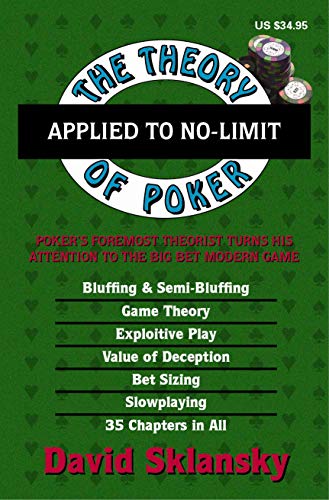What do you think?
Rate this book


312 pages, Kindle Edition
Published July 10, 2019
poker is a game of risks versus rewards. Any decision you make at the poker table can be thought of as a comparison of the risk involved in a particular play and the possible reward for the play. There are three questions involved in arriving at a decision: How great is the risk? How great is the reward? Is the reward great enough to justify the risk?